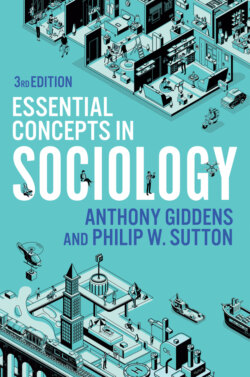Читать книгу Essential Concepts in Sociology - Anthony Giddens - Страница 51
Critical Points
ОглавлениеWeber’s critics see ideal types as being of limited use in sociology. Norbert Elias, for instance, caustically remarked that it was strange to think we should spend our time constructing ideal types when we can study ‘real types’ or empirical cases instead. This criticism seems a good one, though we have to remember that ideal types are meant to be ‘sensitizing concepts’, one of the preliminary stages of research, which will then develop into formal empirical studies.
A further problem with ideal types lies more in the way they are used than in the concept itself. In particular, what starts out as a heuristic device to aid understanding can quickly become a real characterization that needs to be defended. In short, a fictitious ideal type comes to be treated as though it represents a real social phenomenon and, instead of aiding understanding, becomes an obstacle to it. Talcott Parsons observed this slippage even in Weber’s own work on ‘capitalism’, in which he moves between the construct and the unique historical form. In Parsons’s view, the ideal type is useful when identifying general aspects of social phenomena for comparative studies, but much less so when investigating unique historical periods and cultures, which demand detailed empirical investigation.
